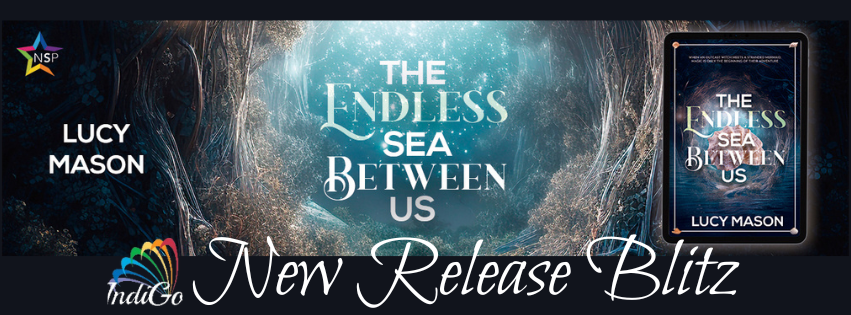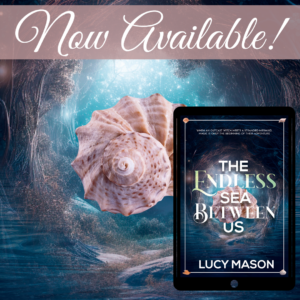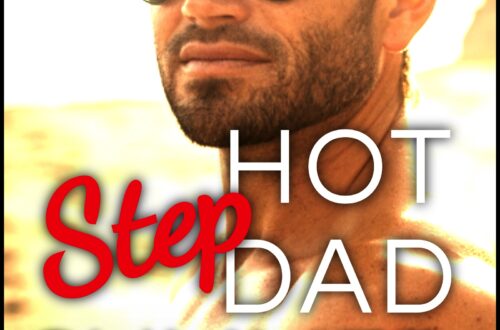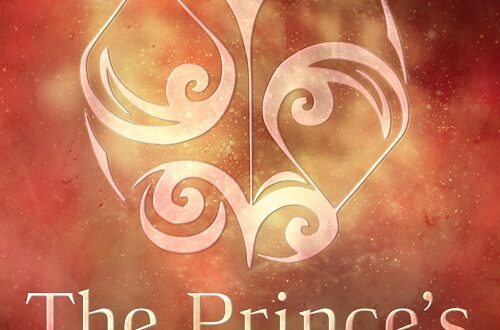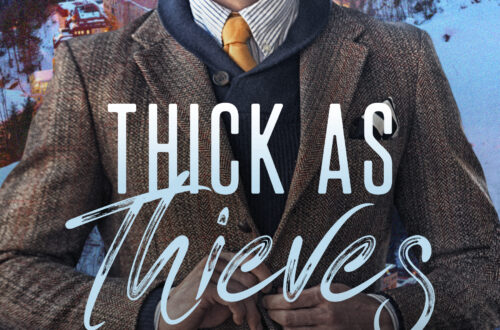
NEW RELEASE BLITZ: The Endless Sea Between Us by Lucy Mason (Excerpt & Giveaway)
Title: The Endless Sea Between Us
Author: Lucy Mason
Publisher: NineStar Press
Release Date: 10/31/2023
Heat Level: 1 – No Sex
Pairing: Female/Female
Length: 66600
Genre: Fantasy, Romance, fantasy, family-drama, witch, mermaid, magic, prince, quest, body swap
Add to Goodreads
Description
Five years ago, Faeryn Moss lost her family and home to a plague that swept her village. As the sole survivor, she was rumored to be a witch—a rumor she never denied because it was the truth. Ostracized and cast out in fear, she now lives a quiet life in a cave on the beach, alone with her magic and the only thing that never let her down, the only thing she loves: the sea. But when she sings up a storm borne from her grief in order to collect a net full of the sea’s treasure, she gets more than she bargained for. There’s a mermaid tangled within it.
Zale, washed into the net by the storm, is full of questions about humanity. Banished from her society for rescuing a drowning human, all she wants is a chance on land to start over. Seeing an opportunity for both of them to get what they want, Faeryn creates a transmutation rune—but as they go from reluctant allies to something else and Zale thaws Faeryn’s frosty heart, they struggle with what’s more important…their chance at a new beginning or their budding romance.
Everything changes when the kingdom’s witch-hunting prince decides to take Zale as a member of the royal court and the potential future queen against her will. Faeryn must follow her across the sea so their transmutation rune can be completed by the next full moon or risk losing her love and her life to the very magic she cherishes.
Excerpt
The Endless Sea Between Us
Lucy Mason © 2023
All Rights Reserved
Faeryn
The seaside village of Acantha was convinced the only way a girl could be the sole survivor in a house struck down by plague was if she was either a witch or was cursed. Little did they know, the village stopped thriving not because I had survived but because my mother hadn’t. Not all witches wove spells of bad intention; she blessed the town all her life, ensuring good fortune, plentiful crops, and favorable weather. She spent my first thirteen years murmuring words of protection, resilience, and well-being over me before kissing my forehead and telling me good night. It was the only thing that saved me—I had no proof, but I knew it as sure as I knew her blood, witch’s blood, ran in my veins.
The village had burned my house—and several others—to the ground to keep the plague from spreading, though I had saved and hidden my mother’s references and spell books. Where she had closely guarded her secret, I never denied their assertions about my magic, even as the threat of witch-hunts spread outward from the capital like a deadly ripple. I had been encouraged to move along to another town. I had not-so-respectfully declined and went about my business, because if Acantha was going to hate and fear me, I was going to give them a reason to do so. If they wanted a villain, a pariah, I’d give them one.
I rebuilt my life in a cave off the beach, only venturing to town for Wednesday market to buy goods I couldn’t procure myself and sell the gifts the sea brought me. I hoarded my blessings and spells; I used them to keep myself dry and warm, to carve runes in the stone to conceal the entrance and entice fish to swim into the small pool that filled every time the tide rose and trapped them when it fell.
I occasionally used magic for less scrupulous things—but only when I had to. The sea gladly turned over its riches to me, and I didn’t care to take advantage of it, but sometimes money was a necessity. So, on the afternoon of my eighteenth birthday, I whispered words of dryness and care, dipping my fingertips into the small dish of ground seashells and the ash of burned driftwood and running them over the fabric of my dress and up and down the leather of my boots. I marched down to the beach clutching my net, a giant thing I’d made myself, hours and hours spent weaving golden thread—bounty, vitality, security—into the hundreds of knots holding the ropes together.
I waded into the water, to my knees, then my hips, then my chest. The waves washed in and out, and I felt the current—but remained dry. I swam out and tied the net to a buoy I had anchored there, then attached the other end to a buoy farther down the beach. I ducked under, my eyes stinging, and traced a symbol like a bow, for closure, capture, finality. It glowed briefly then faded, pulsing very dimly in the murky depths. There wasn’t much I could do below the surface; runes were always more effective when they were imbued with the intention of spoken words.
My waterproofing charm was wearing off—drips of water collected in my boots and my skirts clung to my legs, not wet yet but just faintly damp. The first five or six times I’d done this, I had come out looking like a drowned sailor, my hair in dripping snarls and my boots so heavy with water I could hardly walk. Practice, time, and patience had improved me—I stood on the beach and lifted my arms and whispered. The little droplets of water clinging to me and dampening my dress evaporated.
If I was the heedless nightmare they feared, I would do the next step without warning the villagers. Instead, I made the quarter hour’s walk into town. Well, I say town—it was really nothing more than a small cluster of houses, a blacksmith, a tavern, a butcher, and a cobblestone square for the market to set up in while vendors passed through. The children, towheaded and wide-eyed, dared each other to get close to me. They huddled together and whispered, “It’s the sea witch! She’ll turn you into an eel!” as I walked past them. I kept my eyes straight ahead on my way to the blacksmith’s shop, barely able to resist the urge to lunge and hiss and make them scream in terror. My mother would be disappointed to know I had done it before; my father would have been delighted. I’d inherited my temperament and inability to suffer superstitious fools from him.
Someone had started the rumor that if children misbehaved, I’d drag them down to my seaside cave and turn them into a fish—or worse, eat them. It was meant to make little ones behave, to come inside when their mothers called them, but I had never exactly refuted the outrageous claim. Sometimes fear was a powerful tool. It was the only thing keeping them from attacking me—the only thing keeping them quiet.
The tall, gawky apprentice at the blacksmith’s was bent over the forge, his dark hair stuck to his forehead, damp with sweat. He was one of the few who didn’t find me frightening; he facilitated most of my communication with Acantha at large. His family had been my family’s neighbors until the sickness took my mother and father, when they had retreated to the far end of Acantha to escape contamination. We had played together as children. He still had the friendly, cheerful manner and sweet disposition of a boy who hadn’t lost everything, though, and the loss of my parents hung like a veil between us. A veil he couldn’t see or feel, but one I was always painfully aware of.
“Owen.”
He didn’t startle or turn to look at me, a gentle clink from the fire as he withdrew a piece of metal glowing cherry red. Once he quenched it in a barrel of water, clouds of steam billowing around us, he coughed, clearing the air with his hand. Through the haze I could see his hopeful grin.
“Faeryn! What can I do for you today?”
“There’ll be a squall tonight.”
His face fell, the crinkles at the corners of his eyes fading with his smile. “Oh. Okay. Natural, or…?”
“Unnatural. Only rain will touch the town. I can keep the winds confined to the beach. Spread the word. Don’t let anyone wander down there, and don’t let any boats near the water.”
Owen tossed his thick, sturdy gloves onto his workbench. “Thank you for the warning. I’ll let everyone know. You don’t have to go just yet. Would you like some tea?”
His master wouldn’t be wild about the idea of a witch in his workshop. Eckhart disliked me as much, if not more, than most other villagers. Owen was his at-will employee; catching him in my company could be the end of his promising career. So I shook my head, because it was a lonely life, but I wouldn’t let him take the fall. The village had turned its back on me when I’d been orphaned, and if I’d made it this long on my own, I wouldn’t let a boy pity me for it.
“If you change your mind, I always have a pot brewing.”
“I’m afraid Eckhart wouldn’t be terribly pleased to find me here…or that you’d shared his tea with me. The answer is still no.” Every time he asked, and every time I refused. The days of playing together were long gone; too much grief had gone under the bridge since then.
He frowned, a little wrinkle appearing between his eyebrows. “Someday I’ll be a proper blacksmith, not just an apprentice, and you can come in whenever you like. Eckhart doesn’t have any say in what I do after work, though. Tea later?”
I backed away, exasperated. “I said no. Good day, Owen.”
“Goodbye, Faeryn! I’ll see you later!” he called after me, and I ran for the beach, away from him and the people who had turned their backs on me and my family, my boots kicking up small clouds of dust on the path. It was easier to cling to the bitterness that kept me afloat than drown in the sorrow.
Purchase
NineStar Press | Books2Read
Meet the Author
Lucy lives in rural southern Illinois with a frankly ridiculous amount of yarn and books. During the day she works in adult education and by night she’s a writer and dabbler in yarncrafts. She knits, loves video games and podcasts, and cries over fictional characters regularly.
Website | Twitter
Giveaway
One lucky winner will receive a $50.00 NineStar Press Gift Code!



